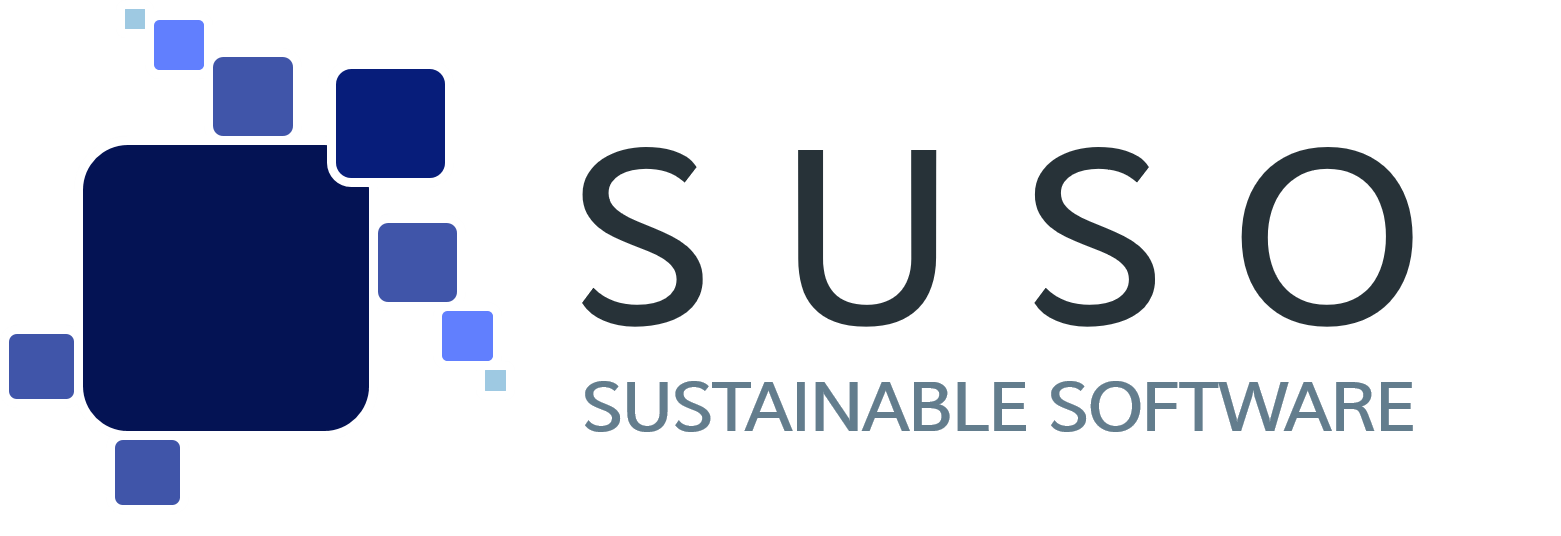Sustainability in marketing: How software companies can market sustainable software
The software industry also has a responsibility for a more sustainable future and has the opportunity to contribute through sustainable software solutions. Thus, sustainability in the software industry means developing and marketing software products and services in a way that is socially, environmentally and economically sustainable. However, software companies that integrate sustainability into their business strategy can not only contribute to improving the world, but also gain economic benefits and strengthen their customer loyalty!
Sustainability as a selling point
Sustainability is on everyone’s lips, and for good reason. More and more consumers are paying attention to the environmental and social impact of their consumption behavior and expect companies to live up to their responsibility. This also means that sustainability is becoming a must in marketing. If a company does not address the issue of sustainability, it risks not only damaging its image, but also losing sales.
But sustainability in marketing goes beyond mere product attributes. It’s also about how a company communicates and the impression it leaves with potential customers. Companies that position themselves clearly and transparently on the subject of sustainability have a chance of being perceived as credible and trustworthy. In addition, sustainability in marketing can also be an incentive for employees to identify with the company and become more involved. Employees are often proud to work for a company that is committed to a good cause.
Software companies can use sustainability as a selling point to appeal to customers and influence their purchasing decisions. This means that sustainability is not just an issue for environmental or social activists. It is also for companies concerned about their image, customer loyalty and competitiveness. For example, a sustainable software solution can help: reduce energy consumption, lower CO2 emissions, increase resource efficiency, ensure data security or improve working conditions. Therefore, by using sustainable software solutions, companies can not only reduce their environmental impact. They also save costs, minimize risks and strengthen their reputation.
Step 1: Sustainability already in software design
To develop sustainable software solutions, software companies must integrate sustainability into the entire development process. This means that they must take aspects into account in order to create software products and services that meet the needs of customers. While doing so, they make a positive contribution to sustainability.
There are various approaches and methods to integrate sustainability in software development, such as eco-efficient design, circular economy, social responsibility or stakeholder engagement. Hence, you can find numerous examples of these on our blog.
Software companies also need to ensure that they measure and evaluate the sustainability performance of their software throughout its lifecycle to achieve and improve their sustainability goals.
Another important aspect is to collaborate with partners, customers, and other stakeholders. You can share knowledge, experience, and resources to jointly develop sustainable solutions. By integrating sustainability into the overall process, companies can not only develop sustainable products. Furthermore, they strengthen their innovative power and competitiveness.
Step 2: Sustainability in marketing
To successfully market sustainable software solutions, software companies need to communicate their sustainability performance and benefits clearly and understandably. This means informing their customers about the impact of their products and showing them how they can contribute to sustainability.
Software companies can present their sustainability performance in their advertising campaigns. For example on their websites or in their product documentation, and demonstrate certifications such as the eco-label or social standards. By incorporating sustainability into marketing, companies can not only increase their credibility and transparency. It benefits their image and customer loyalty.
If you are involved in social projects or non-profit organizations, communicate this openly in your marketing strategy. This shows that you are committed to society and work for the common good. In doing so, you can support non-profit organizations that are committed to society and the environment, for example. Joint ventures, that is the keyword.
Consider the supply chain in the manufacture of your products and communicate how you ensure it is environmentally and socially responsible. This shows that you care about the conditions of your suppliers. Andthe impact of your software on the environment and society.
Show how you care about your employees and how you ensure they are treated fairly. This shows that you care about your company’s social responsibility and value your employees. Invest in employee education and training. Make sure your employees know about the importance of sustainability and how they can contribute to it. For this, we recommend our eLearning course: An Enterprise Guide to Sustainable Software in Theory and Practice.
Sustainable marketing offers a variety of ways to communicate your company’s responsibility and stand out from the competition.
Use our tools for sustainable software
Examples of successful software companies that focus on social, environmental and economic sustainability
These companies have recognized that sustainability is an important part of their corporate culture and business model. That is why they have launched relevant initiatives to achieve and communicate their sustainability goals:
Socially sustainable software companies
- Adobe is a leader in creative software and has set a goal to be carbon neutral by 2030. Along with that, they also have a program called Tech for Good. This program supports the creative work of nonprofits and advocates for social justice.
- GitHub supports the open source community by providing free tools and resources. They also offer various educational programs to promote inclusion and diversity in the tech industry.
- Google has launched several initiatives to support disadvantaged communities. These include Google for Nonprofits, Google.org, and Google Grants. All of which provide free or discounted tools and services to nonprofit organizations.
Environmentally sustainable software companies
- Autodesk has developed tools and resources for engineers and designers to design sustainable products. The marketing campaign emphasizes the importance of design and innovation in creating sustainable solutions. It also shows how Autodesk’s tools can help engineers and designers create greener products.
- IBMs so called Watson IoT for Sustainability that helps companies monitor and analyze their sustainability performance. This marketing campaign emphasizes the importance of IoT technology in achieving sustainability goals. And how IBM’s solution can help companies collect and analyze data to improve their sustainability performance.
- Microsoft has launched an initiative called Microsoft AI for Earth focusing on the usage of artificial intelligence (AI) to solve environmental problems. The marketing campaign emphasizes the importance of AI in environmental research. Additionally, Microsoft’s ability to deliver innovative solutions tailored to customers’ specific needs.
Economically sustainable software companies
- Atlassian supports nonprofits with technology donations and offers free licenses for open source developers. This example shows that the price doesn’t have to be the same for every customer group.
- Red Hat is committed to open source software and fostering collaboration in the technology industry. In doing so, the software company has also launched initiatives to promote education and technology in developing countries and supports local nonprofits.
- Salesforce helps nonprofits with technology donations and offers free training for students.
Challenges and opportunities of sustainability for software companies
Integrating sustainability into the product development and marketing of software solutions can present several challenges for companies. One of these is the complexity and diversity of sustainability issues. These must be considered in order to develop software that meet customer needs while making a positive contribution to sustainability. Another challenge is the availability of data and information needed to assess the sustainability performance and impact of products. Additionally, software companies also need to ensure that they adequately assess and manage the costs and resources required to implement sustainability initiatives in order to maintain competitiveness and profitability.
Despite these challenges, integrating sustainability into the product development and marketing of software solutions also presents opportunities for companies. One of these is the opportunity to differentiate themselves from competitors and attract new customers looking for sustainable solutions. Moreover, software companies can also strengthen their innovative power and image by establishing sustainability. They build it up as a part of their brand and corporate culture. Additionally, by integrating sustainability into their business processes and decisions, companies can also make a positive contribution. That means an increase of their long-term profitability and value creation.
Conclusion for (sustainable) software companies
All in all, sustainability is increasingly becoming an important issue for software companies. Sustainable marketing not only offers the opportunity to communicate the company’s environmental and social responsibility. It is also an worthy instrument to win the trust and loyalty of customers.





